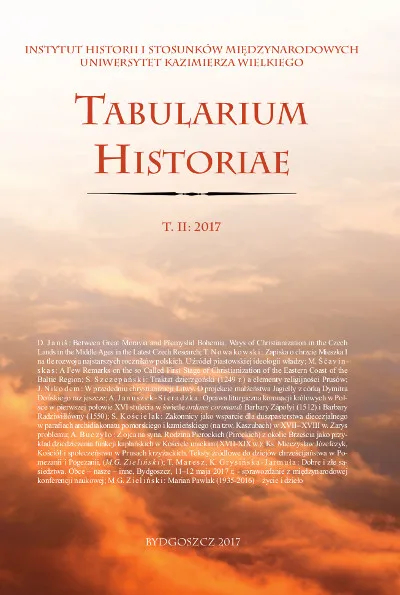The Treaty of Christburg (1249) and the Elements of Prussians Religiosity
DOI:
https://doi.org/10.34767/TH.2017.02.04Abstract
The Treaty of Christburg, concluded in 1249, ended the Prussian uprising which began in 1242. At this time, the Prussians opposed to the politics of the Teutonic Order which had forced them to pay taxes, decided to unite with the prince of Pomerania, Świętopełk, and begin the fight. The tribes of the Pomezanians, Warmians and Natangians took part in the uprising. The treaty was concluded thanks to the mediation of the papal envoy and contained many compromising solutions. It isimportant to note that the Teutonic Order had already admitted in the preamble that the Prussians had accused them of ignoring the evangelical care of neophytes and the build of churches. The original document contradicted what the chronicler Peter of Dusburg wrote 80 years later, that the Prussians began the uprising, abandoned Christianity and returned to paganism. In the treaty of 1249, it was written that the Prussians were to accept Christian law – they established amongst themselves that it would be Polish law. They were to forsake the habit of having multiple wives and purchasing them, forsake the habit of killing children, cremating the dead and not professing faith in gods other than the Christian god. Thanks to the document, we know that one of their main deities was Curcho – the god of fertility. The Prussians were also to abandon the custom of the participation of “false priests” during funerals, called tulissones and ligassones who acted as guides of the souls of the dead cremated on pyres. In the article, this problem is described in a broad religious, linguistic and historical context. The author discusses Prussian religiosity and funerary customs in the context of the many problems concerning Prussian society during the pagan period and the early years of Christianisation.

